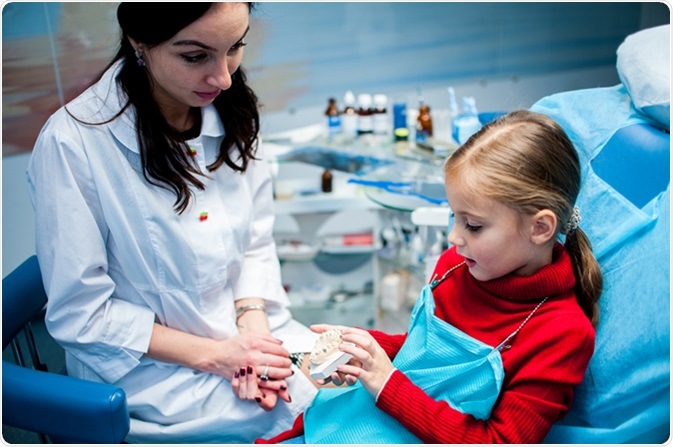Anxiety is defined as the fear, nervousness, or worry a person undergoes when he encounters a specific thought.
Children tend to have more fears and anxieties compared to adults; most of these fears are considered as normal and tend to fade away as they grow older. However, for some children these anxieties are known to influence their behavior. It can also affect their daily activities by interrupting while at home, school, or outside.

Image Credit: Wowsty / Shutterstock
Health Anxiety Symptoms
There are several symptoms a child showcases if affected by health anxiety. There are chances that these children are not mature enough to understand their peculiar types of thoughts, while the effects and reasons for the anxiety vary with respect to their age. Here are a few, using which parents can conclude whether their kid is affected or not:
- Bringing one or more health concerns every day
- Often asking parents to test their temperature
- Frequent health complaints, even after the physician has certified that the kid is healthy and strong
- When they tend to have more knowledge about germs and diseases than a normal kid
- When he tends to worry too much that he might develop a cancer or tumors
- Child is anxious and nervous when he meets a sick person
- Often wanting to wear a band aid
- Trying to pretend to be ill even after recovery
- Gets anxious when hearing about a disease or illness on TV or radio or by other people
- Finding a mysterious lump on the body
- Try to research on diseases that they have heard about recently
- Often coming back from school or taking leave stating that they are not feeling well
- Mysterious body pains which even the doctor cannot figure out
Living with Health Anxiety | Dollybowbow
Causes of Health Anxiety
There are several causes that lead to health anxiety in the minds of children. In cases where a mother or father of the kid is affected by an illness, it could trigger anxiety or fear within the kid. This type of fear vanishes within a week or months’ time. It may, however, get severe when it becomes a personal issue with children, such as in the traumatic experience of a father being affected by cancer or someone close dies of flu. This will make the child anxious that he may also develop the disease.
The cause for health anxiety in children sometimes lies with the communication medium. If a kid watches the TV news on the spread of a virus and people dying because of it, he may develop scary thoughts of death by the disease. Although exposed kids do not have perfect knowledge about the illness, they imagine stories about it that can make them more frightened.
If not the media, children get updates from their friends in school or from the neighborhood. For instance, if a kid hears the news of swine flu and its related death rates, they build stories in their minds and by the time they reach the playground, the stories become “children affected with swine flu will die within a month’s time.” So it is likely that the kid who shared or the one who received the message may develop an unnecessary fear or anxiety. Moreover, a hypochondriac parent’s behavior can make a child adopt this anxiety.
Making Kids Overcome Health Anxiety
Try to talk about the defenses our bodies have to keep germs and viruses away. Kids may hear a lot about diseases, but they fail to understand how the human body works miraculously to keep us healthy.
Furthermore, make them understand the difference between a normal illness and a cancer. As mentioned above, if a loved one has an illness, children may be confused that they may also develop one. This often causes health-related anxiety.
Brief them about the importance of germs, and how catching a cold can improve the immune system. Also, make them understand that when people get older, they tend to develop illness and disease, and that now they are too young to develop one.
Health Anxiety Treatment
There are several methods of treatment that can cure children with anxiety. The most common therapy practiced by the physician is cognitive behavioral therapy (CBT). This therapy helps children to understand health-related thoughts and to manage them. It is an effective therapy mostly used to cure young people.
In this kind of treatment approach a kid sits through some 10–15 sessions that will change the way of their thinking and help to overcome anxiety. There is no proof that mentions CBT to be efficient enough for children below six; for these kids, counseling or medication will be the solution to make them overcome their health anxiety issues. In most instances, the child resolves these fears as he/she grows older.
Further Reading
Last Updated: Dec 29, 2022